I’m not sure what our schoolchildren are taught about the Pilgrim Fathers these days. Probably not much. They may be taught that they sailed from England to escape persecution by the state church, and that they were generally inept folks who would all have died were it not for the assistance of a gentle Indian named Squanto, who showed them what maize was and how to fertilize the flinty New England soil with dead fish. For that, they gave the first Thanksgiving dinner, to Give Thanks, and invited the Indians, to whom they also gave thanks.
But the students surely are not taught what a pilgrim is, literally. The Latin peregrinus means “somebody who wanders across the fields,” and was adopted in the Middle Ages to refer to one who made the arduous trip overland—and finally over the Pyrenees—to the shrine of St. James at Compostela, in Galicia.
Such journeys are of the essence of Christian piety. For the call of the pilgrim is older than the Middle Ages, older even than the New Testament. In a way, it is as old as creation, when the Word went forth from the Father, not to return in vain.
It begins, certainly, with our first parents. The Lord expelled the first sinners from the garden, when, as Milton says, “The world was all before them, where to choose/ Their place of rest, and Providence their guide.”
Enoch walked with God, and then one evening was seen no more. Noah ventured upon the billowing seas in an “ark,” a box, and, as my colleague Patrick Reardon has written, that rare word is the same used to describe the little wicker basket wherein the baby Moses was placed upon the waters.
Abraham, without a Baedeker, by camel and on foot, took his weary way from Ur of the sophisticated Chaldees to the land the Lord would show him, a land he knew nothing of. The great Passover meal is eaten as if in haste, with one’s loins girt and staff in hand, ready for a journey. The commandments are placed in another Ark, and for generations that Ark resides in a tent, moving from place to place. Jesus goes before us to Galilee, then to his Father’s house, to prepare a dwelling for us there.
The Christian faith is a faith on the move, secure in the kingdom of God that is already among us, but awaiting the kingdom to come in its fullness. We know that our homes are not here; we are all like Abraham, our father in faith, strangers in a strange land.
Yet it is liberating, that knowledge that no farmland however rich, no hills however green, no city however just can claim our final allegiance as our home. It frees us to forgive the stumps and stones, the abandoned machines, the burnt-out tenements, the buckled roads, the commissioners on the take, the mosquitoes from the marsh, the swelter in August and the frozen mud in February.
We can be stable, steadfast—planted in one place. So were the monks who lived under Benedict’s rule. Because they were pilgrims, they knew that no one place here could satisfy the heart. So with a free conscience they took a vow of stability, and devoted their earthly attentions to one place, praying there, and clearing woods, draining swamps, tilling fields, and draping the hills with the vine.
With the same spirit of longing for home, and a similar care for their less than perfect new place of sojourning in a cold and harsh land, the Pilgrim Fathers stayed close to where they built their first village. Such a pilgrim is a patriot in the most perfect sense. He loves his land, and devotes himself to it, because it is a shadow of the patria he truly loves, and towards which he is always walking. The grace of the Father calms our hearts, and spurs us on, as the Father himself is ever in act, and ever at rest.
What is the converse of the pilgrim? The wanderer, seeking the peace that cannot be found on earth; godless, therefore strangely landless, making an idol of every city or every earthly delight he happens upon, but turning against it when it proves to disappoint.
Such wanderers are restless, yet fixed in a dreary stasis. They are always going here and there, to no end, as men inextricably lost in the windings of a labyrinth. “God help the man so wrapped in Error’s endless train,” says the poet Spenser.
How to love our land of trouble by loving the Land of Rest and setting our hearts upon it? Let the virtue of patriotism be baptized and transformed by loyalty to Christ. John Bunyan loved his native England even when she saw fit to toss him in jail for his religious dissent.
Thence came the great Pilgrim’s Progress, wherein we read, in a good old muscular hymn, that the “true valor” of an English Christian, a valor that will not quail for wind or weather, is constancy in pilgrimage, steadfastness in being on the move towards the city of God:
Hobgoblin, nor foul fiend
Can daunt his spirit:
He knows, he at the end
Shall life inherit.
Then fancies fly away,
He’ll fear not what men say,
He’ll labour night and day
To be a pilgrim.
Pilgrims and patriots, a Happy Thanksgiving to you all.
The text of this podcast appeared in November, 2007 issue of Touchstone Magazine.
Word & Song is an online magazine devoted to reclaiming the good, the beautiful, and the true. We publish six essays each week, on words, classic hymn, poems, films, and popular songs, as well a weekly podcast, alternately Poetry Aloud or Anthony Esolen Speaks. To support this project, please join us as a free or paid subscriber.

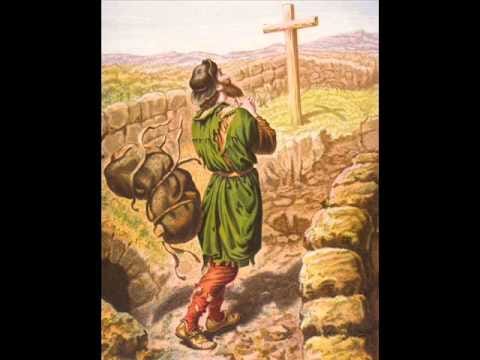






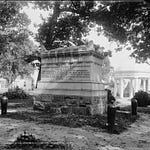
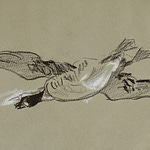

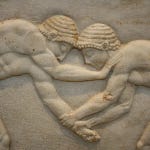
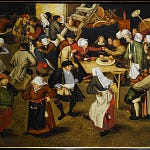

Share this post